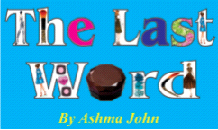 I remember when I first told a friend I was a Spice fan. When telling the story that led up the revelation I thought dismay would have been the reaction, because I was speaking about the late start time of a show she once performed at a club in a town called Le Havre in the Normandy Region, France. Instead, my friend’s shock was directed at my taste in music. “Your husband is showing you a different life. Why do you like Spice?” was the remark.
I remember when I first told a friend I was a Spice fan. When telling the story that led up the revelation I thought dismay would have been the reaction, because I was speaking about the late start time of a show she once performed at a club in a town called Le Havre in the Normandy Region, France. Instead, my friend’s shock was directed at my taste in music. “Your husband is showing you a different life. Why do you like Spice?” was the remark.
I was at a loss for words for a bit and to be honest I was a little hurt. The underlying message for me was that my tastes were inferior and I was in desperate need of being ‘whitewashed’ to match my new life.
Most of us, myself included. have been taught consciously and unconsciously to have biases based on race and class and often this is mirrored in our tastes and preferences by way of style, food, and personal aesthetics. Sadly, it is part of the reality of growing up in a post-colonial society.
Last week, when I came across a Chronicle article that claimed Opposition Leader Norton lamented that artists like Spice and Skillibeng are creating music which encourages men to be abusive to women and damaging to the moral fabric of Guyana, it felt as if I was hearing my friend’s voice again. The comments reek of a classist attitude and appear as if by singling out “select bag eggs” our society would be new and good. Norton is not alone in his school of thought though. Jamaica recently banned music and TV broadcasts that glorify scamming, the use of drugs, criminality and violence with hope of it being a solution to an upsurge in crime.
I wonder what they will do with movies like Scarface and Fast and Furious that serve us up the same. Perhaps it matters not what is being sung or performed but rather who is doing it. Perhaps we have an unconscious bias to see some so-called violent movies and songs as acceptable. If such is not the case then other genres like Soca and Chutney that blast on our airwaves should face the same scrutiny. Dancehall singers, like any other type of artists, sing about their reality. Their music is a direct reflection of the state that their communities are in.
The reality of the communities aren’t a result of the singers but rather poor policy from local and central government. They are the result of poor infrastructure, constant blackouts, inflation, capitalism, low wages, systematic inequality to name a few issues. These are what cause crime, not the music.
Making people listen to Nina Simone, as much as I love her, also wouldn’t change the fact that these problems exist and serve as a ticking time bomb as it relates to the social contract between states and citizens. Our habit of assigning blame while ignoring the elephant in the room is the most ridiculous thing. Instead of focusing on music and artists, we need to address the root of the problem.









